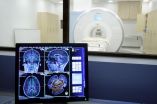Alternate approach to traditional CPR saves lives
Use of ECMO during CPR improves outcomes
2014-10-21
(Press-News.org) A new study shows that survival and neurological outcomes for patients in cardiac arrest can be improved by adding extracorporeal membrane oxygenation (ECMO) when performing cardiopulmonary resuscitation (CPR). The study abstract was released today in an online supplement of the journal CHEST and will be presented at CHEST 2014, the annual meeting of the American College of Chest Physicians in Austin, Texas held October 25-30.
Despite advances in medical care, less than 20% of people who experience a cardiac arrest make a full recovery. An alternate approach to traditional CPR is the use of ECMO during CPR (E-CPR), which provides immediate cardiovascular support when traditional methods fail. E-CPR has been used increasingly in an attempt to improve outcomes after cardiac arrest.
Researchers at Thomas Jefferson University studied results of 100 ECMO procedures performed between 2010 and 2013. Of those 100 procedures, 24 cases unresponsive to conventional CPR received E-CPR. Of the 24 patients, 15 were male and nine female, with an average age of 47 years. Patients received E-CPR for a number of reasons, such as acute myocardial infarction, malignant arrhythmia, myocarditis, acute pulmonary embolism, and hypothermia.
ECMO support was provided for a mean of 5 days, resulting in 13 patients surviving, with seven discharged from the hospital with full neurological recovery. Six patients died post-ECMO from anoxic brain injury, sepsis, and stroke. Researchers found that the 53% of ECMO survivors were discharged with full neurological recovery. "Based on the survival rates, E-CPR should be considered when determining the optimal treatment path for patients who need cardiopulmonary resuscitation," said researcher Graham Peigh, BA.
INFORMATION:
CHEST 2014 is the 80th annual meeting of the American College of Chest Physicians (CHEST), held October 25-30, 2014, in Austin, Texas. The American College of Chest Physicians, publisher of the journal CHEST, is the global leader in advancing best patient outcomes through innovative chest medicine education, clinical research, and team-based care. Its mission is to champion the prevention, diagnosis, and treatment of chest diseases through education, communication, and research. It serves as an essential connection to clinical knowledge and resources for its 18,700 members from around the world who provide patient care in pulmonary, critical care, and sleep medicine. For information about the American College of Chest Physicians, visit chestnet.org, or follow the CHEST meeting hashtag, #CHEST2014, on social media.
ELSE PRESS RELEASES FROM THIS DATE:
2014-10-21
PROVIDENCE, R.I. [Brown University] — Scientists think of CD8 T cells as long-lived cells that become tuned to fight just one pathogen, but a new study finds that once CD8 T cells fight one pathogen, they also join the body's "innate" immune system, ready to answer the calls of the cytokine signals that are set off by a wide variety of infections.
Think of CD8 T cells as soldiers who are drafted and trained for a specific mission, but who stay in service, fighting a variety of enemies throughout a long career.
CD8 T cells therefore have more utility than researchers ...
2014-10-21
Eliminating subsidies that help low- and moderate-income people purchase coverage through government-run health insurance marketplaces would sharply boost costs for consumers and cause more than 11 million Americans to lose their health insurance, according to a new RAND Corporation study.
Modeling the likely effects of ending subsidies offered to individuals under the federal Affordable Care Act, researchers found that such a move would increase premium costs in the individual marketplaces by as much as 43 percent and cause enrollment to drop by 68 percent.
"If subsidies ...
2014-10-21
Two Michigan high school students, sisters Ilina and Medha Krishen, have developed screening tools using electronic stethoscopes to detect lung and heart disease. The sisters will present their findings at CHEST 2014 in Austin, Texas next week.
Ilina Krishen became aware of the dangers of smoking and chemical air pollution when she saw the effects of lung disease on family members. Curious to find a way to detect early lung damage in people exposed to noxious air pollutants, Ilina, a high school senior at Port Huron Northern High School in Michigan, developed a screening ...
2014-10-21
Adults typically believe that life gets better — today is better than yesterday was and tomorrow will be even better than today. A new study shows that even depressed individuals believe in a brighter future, but this optimistic belief may not lead to better outcomes. The findings are published in Clinical Psychological Science, a journal of the Association for Psychological Science.
The research shows that middle-aged adults who had a history of depression tended to evaluate their past and current lives in more negative terms than did adults without depression, ...
2014-10-21
TORONTO, Oct. 21, 2014--Controlling the Ebola virus outbreak at the source in West Africa is the most effective way to decrease international risk of transmission, according to a research paper published today in The Lancet.
If the epidemic persists and grows, it's likely there will be more cases of the deadly virus exported to other countries, including Canada, via air travel, said Dr. Kamran Khan, a physician and researcher at St. Michael's Hospital.
Dr. Khan, who examines global airline travel patterns to predict the spread of diseases, said that every month, three ...
2014-10-21
VIDEO:
In this video, a Salk researcher explains how cancer evolves to become drug resistant.
Click here for more information.
LA JOLLA—Like a colony of bacteria or species of animals, cancer cells within a tumor must evolve to survive. A dose of chemotherapy may kill hundreds of thousands of cancer cells, for example, but a single cell with a unique mutation can survive and quickly generate a new batch of drug-resistant cells, making cancer hard to combat.
Now, scientists ...
2014-10-21
PENSACOLA, Fla. – Ospreys do not carry significant amounts of human pharmaceutical chemicals, despite widespread occurrence of these chemicals in water, a recent U.S. Geological Survey (USGS) and Baylor University study finds. These research findings, published by Integrated Environmental Assessment and Management is the first published study that examines the bioaccumulation of pharmaceuticals in the water-fish-osprey food web.
Pharmaceuticals have been finding their way into the environment, primarily through wastewater, urban runoff and even biosolids applied ...
2014-10-21
JACKSONVILLE, Fla. — After following breast cancer patients for an average of eight-plus years, researchers say that adding trastuzumab (Herceptin) to chemotherapy significantly improved the overall and disease-free survival of women with early stage HER2-positive breast cancer.
They found that the use of trastuzumab produced a 37 percent improvement in survival and a 40 percent reduction in risk of cancer occurrence, compared to patients treated with chemotherapy alone.
These findings, published in the Journal of Clinical Oncology, demonstrate how important ...
2014-10-21
A new study, which may have implications for approaches to education, finds that brain mechanisms engaged when people allow their minds to rest and reflect on things they've learned before may boost later learning.
Scientists have already established that resting the mind, as in daydreaming, helps strengthen memories of events and retention of information. In a new twist, researchers at The University of Texas at Austin have shown that the right kind of mental rest, which strengthens and consolidates memories from recent learning tasks, helps boost future learning.
The ...
2014-10-21
ANN ARBOR, Mich. — Scientists have restored the hearing of mice partly deafened by noise, using advanced tools to boost the production of a key protein in their ears.
By demonstrating the importance of the protein, called NT3, in maintaining communication between the ears and brain, these new findings pave the way for research in humans that could improve treatment of hearing loss caused by noise exposure and normal aging.
In a new paper in the online journal eLife, the team from the University of Michigan Medical School's Kresge Hearing Research Institute and ...
LAST 30 PRESS RELEASES:
[Press-News.org] Alternate approach to traditional CPR saves lives
Use of ECMO during CPR improves outcomes






